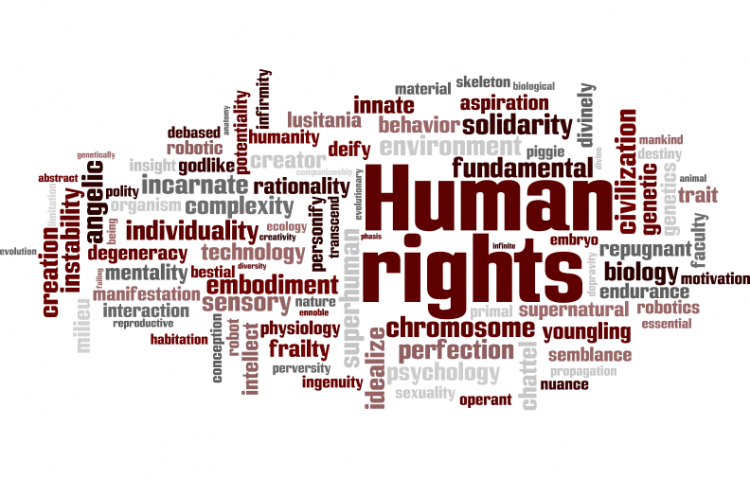Hold Tobacco Industries Accountable for their Human Rights Abuses Overseas

- Target:
- US Federal Government
- Region:
- GLOBAL
- Website:
- www.cap-at.com
Tougher tobacco control laws in the US are driving the industry to market more aggressively to the rest of the world, especially the developing world.
Thus, the tobacco industry is having a larger impact than ever on poverty, internationally.
Tobacco contributes to: poverty, malnutrition and hunger (diverting land from food use as well as diverting money from purchasing food), increased health costs, premature death, illiteracy (less money available for education), financial slavery (for many tobacco farmers), and child labor. All of these factors have added to the tobacco industries’ death toll of millions of lives every year.
Poverty and hunger are two of the largest repercussions of the tobacco industry worldwide. In December 2004, the World Health Organization announced: “Tobacco and poverty are inextricably linked. Many studies have shown that in the poorest households in some low-income countries as much as 10% of total household expenditure is on tobacco.” Also, land under tobacco cultivation around the world today could feed 10-12 million people each year if planted in food crops instead. In Bangladesh, 350 children are dying each day due to diversion of money from food to tobacco; over 10.5 million currently malnurished people in Bangladesh could have an adequate diet if the money spent on tobacco was spent on food instead.
The tobacco industry plays a large role in the poverty and hunger worldwide; our government must take action to help the poor and the starving not only in the US but also worldwide.
The tobacco industry also takes advantage of third world countries through the production of tobacco. Tobacco farmers and their families have been the victims of environmental destruction of their lands, economic slavery to the industry, limited opportunities, poor (often dangerous) working conditions, and even the poisoning of their children. Many tobacco farmers, specifically in Nigeria, find themselves and their families in an endless cycle of poverty because of their contracts with British American Tobacco: these farmers worker harder and harder every year only to find themselves falling farther into debt with BAT. Similar situations are apparent in Mexico and Malawi where tobacco proves to be a crop that makes its farmers poorer rather than garnishing a profit.
Part of the vicious cycle the farmers experience is due to the fact that the tobacco industry has struck up agreements with governments of third world countries to keep it as a commercial crop even though it destroys local economy.
Farmers and their families are not only poverty-stricken by the tobacco industry but also killed by growing the plant. Tobacco requires several applications of pesticides to grow a commercial crop, and they are often applied by unprotected farmers and their families, including young children. Pesticide poisoning is common and taken for granted. The runoff from the fields can poison wells and other water supplies.
The tobacco industries’ human rights abuses must not be ignored. Child labor is apparent in many tobacco growing and manufacturing countries. In Malawi in Africa, 78% of children between 10-14 years old work either full-time or part-time with their parents on the tobacco farms. In one State of Brazil 520,000 (five hundred and twenty thousand) children under 18 work in the tobacco fields. 170,000 of these children are under the age of 14. In the Sinaloa Valleys of Mexico, 200,000 indigenous migrant workers harvest tobacco each year. 50,000 of them are children between the ages of 5-14. The young children cut and bundle the tobacco leaves putting themselves at greater risk of absorbing pesticides and nicotine from the tobacco leaves through their skin, and these toxins lead to several diseases that have led to death.
Bonded labor is also akin to child labor. In India, children are forced to roll beedis (a type of handmade cigarette) typically with terrible working conditions in order to pay off debt accrued by their families (usually because of medical expenses, funeral costs, or inherited debt from the death of parent). The children are not only robbed of a childhood, but they are also abused and contract diseases from working with tobacco.
According to the article “Understanding Bonded Child Labour in Asia:” “Children involved in beedi-rolling (a kind of cigarette) suffer from high rates of tuberculosis and other lung diseases.” Not only is the tobacco industry employing children in the production of tobacco, but the industry is also abusing and killing children through the abhorrent working conditions they experience and the exposure to deadly chemicals.
Overall, while the US is working to tighten tobacco control laws, the tobacco industry is now looking elsewhere to take advantage of unsuspecting people. The tobacco industry performs many human rights abuses including utilizing child labor and increasing hunger and poverty worldwide.
The US has done something to protect our citizens from the tobacco industry, and now it is up to our government to prevent these industries from attacking those less fortunate.
We, the undersigned, are appalled by human rights abuses the tobacco industry has incurred throughout the world. They have not only killed millions of people through smoking, but also killed millions through the widespread poverty the industry incurs throughout the world.
The US Federal Government should not allow the tobacco industry to take advantage of third would countries and their people, and the government needs to hold the industry accountable for what it does overseas.
You can further help this campaign by sponsoring it
The Hold Tobacco Industries Accountable for their Human Rights Abuses Overseas petition to US Federal Government was written by Reality Check and is in the category Human Rights at GoPetition.